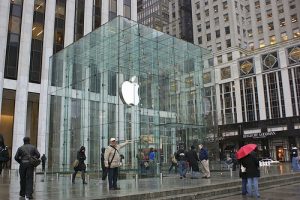UK’s ‘golden era’ with China ‘sent wrong message’, says Liz Truss
Liz Truss has called for the creation of an “economic NATO” to stand up to China in her first speech since resigning as prime minister.
Speaking at the Inter-Parliamentary Alliance on China Symposium in Tokyo on Friday, the Conservative MP said world leaders should learn the lessons of not taking earlier and tougher action against Russia as she rejected the “fatalism” of those who think “the rise of a totalitarian China is inevitable”.
Ms Truss, a former foreign secretary, used the address to call for an “economic NATO”, with ready-made sanctions and an equivalent to article 5 – where an attack on one member leads to retaliation by all of them.
She said the G7 and its allies represent more than half of global GDP, and they can use that “economic weight” to “make decisions about how we trade, who we invest in, what technology we export – and we need to use that leverage to ensure that the G7 plus allies act as an economic NATO”.
She added: “China is clearly building its domestic market in anticipation of a harder line.
“But at present it is reliant on exports to the West.
“Now is the time to make sure trade and commerce is free and not coercive.
“There are ways this can be done. We could move to an economic article 5, where the ‘one for all, all for one’ principle is wielded in defence of fundamental values.”
Ms Truss also criticised the UK government’s former approach to Beijing under David Cameron and George Osborne – the so-called “golden era” of increased economic ties – saying it “sent the wrong message”.
Her appearance comes amid growing pressure on Rishi Sunak from his own party to take a tougher stance on China.
Mr Sunak said in November that the “golden era” was over, but described the nation as a “systemic challenge” rather than a threat to the upset of his MPs.
Speaking earlier this month, one of Ms Truss’ allies said she would be “hawkish” in the speech, and address her successor’s choice of words.
Click to subscribe to the Sky News Daily wherever you get your podcasts
Mr Sunak also faced criticism from another former Tory leader earlier this week, Sir Iain Duncan Smith, over reports officials were set to meet Erkin Tuniyaz, the governor of Xinjiang province who has been accused of genocide of Uyghur Muslims.
The meeting is now understood to have been cancelled.
‘The free world is in danger’
Ms Truss’ speech also comes amid increasing international tensions with China over trade, human rights and Taiwan.
On the latter, she called on the international community to agree a co-ordinated package of defence, economic and political measures to support the island-nation.
Ms Truss said the “free world is in danger” from the rise of authoritarian regimes like China adding: “We know that President Xi has been very clear – it’s his ambition for China to have control of Taiwan and in my view that would be disastrous.
“We must ensure that Taiwan is able to defend itself, and we must work together across the free world to do this.
“I would like to see a more developed Pacific defence alliance alongside even closer co-operation between NATO and our Pacific allies.”
Read more:
Nicola Sturgeon resigns: Who will replace her?
Strikes back on in Wales after pay offer rejected
Corbyn accuses Starmer of ‘flagrant attack’ on his future
The comeback
Ms Truss resigned as the UK’s prime minister last October after the fallout from her so-called mini-Budget, with a raft of unfunded tax cuts spooking the markets and sending them into turmoil.
Her first public appearance after that came earlier this month with a 4,000-word article in the Telegraph.
She claimed that while she wasn’t “blameless”, she was never given a “realistic chance” to implement her radical tax-cutting agenda and blamed what she called a “powerful economic establishment” for removing her from Downing Street.
In an interview with the Spectator a day later, she said she did not regret her time as PM but ruled out another run at the job.


